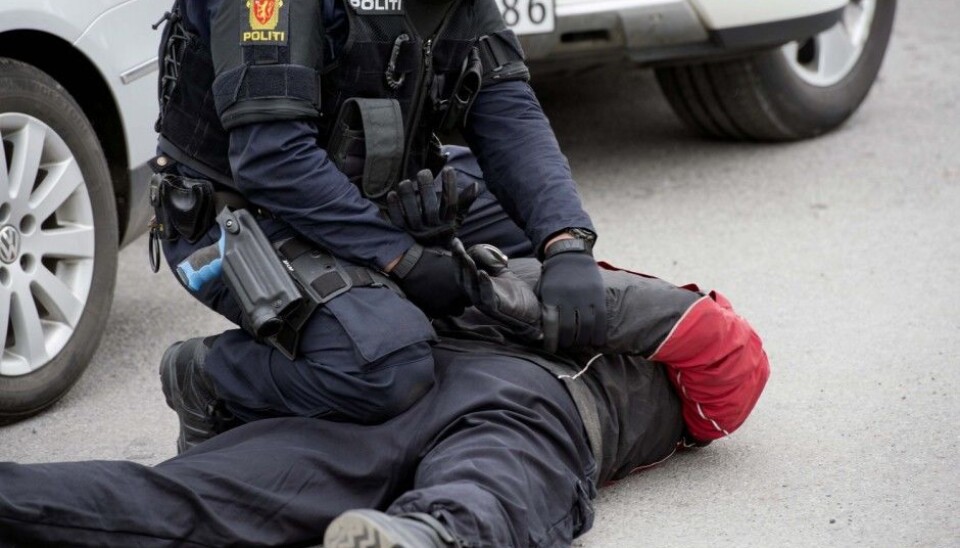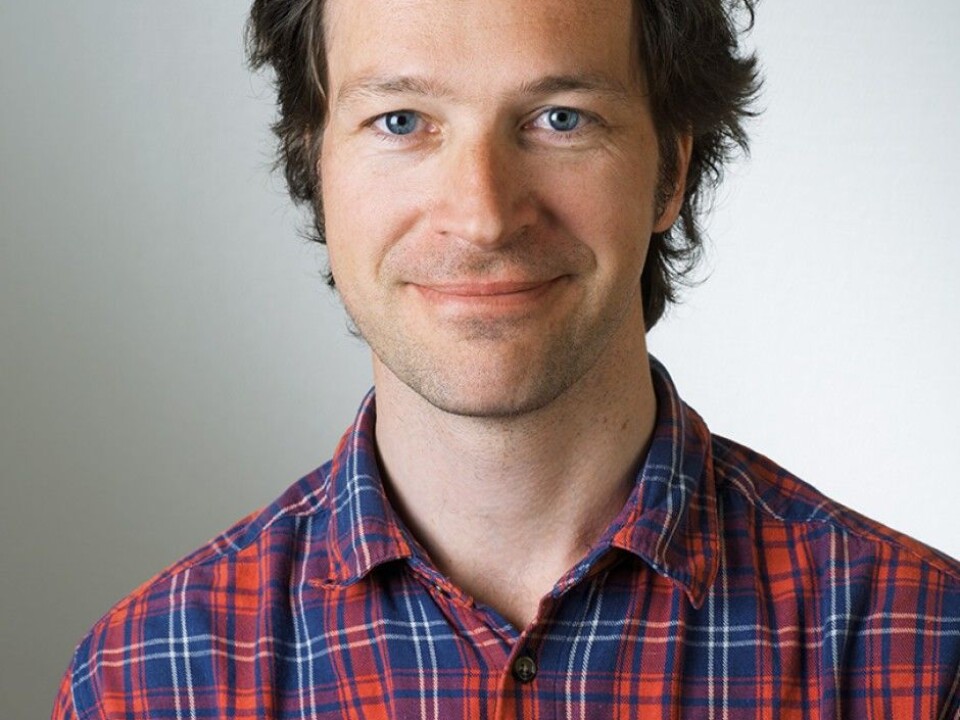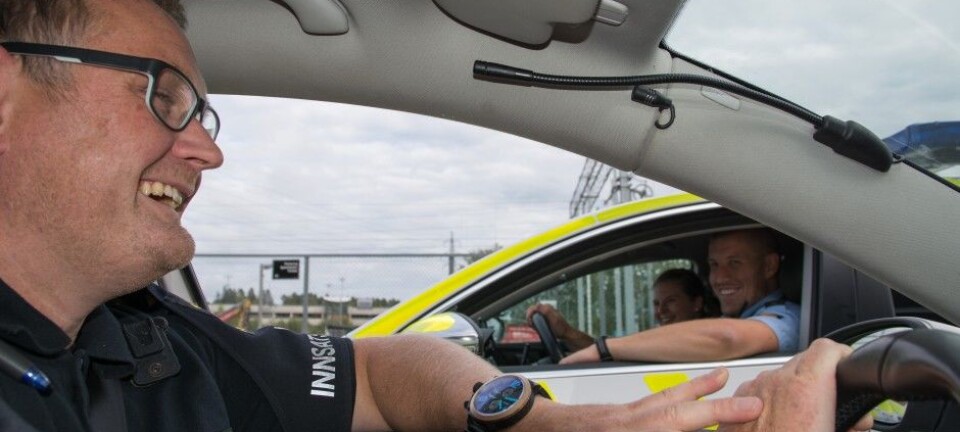
Addicts in fear of mandatory rehab
Substance abusers whose lives are acutely at risk can be committed to compulsory rehabilitation treatment. Some become scared of, angry at, and sceptical of the health services. What was meant to be an exception to the rule of voluntary participation has now become standard procedure in many Norwegian municipalities.
Denne artikkelen er over ti år gammel og kan inneholde utdatert informasjon.
Norwegian researchers have interviewed drug addicts about their experiences of being committed to rehab institutions.
Authorities are empowered to take charge when drug abuse gets to the point where a person’s life is in jeopardy. Addicts can be committed to treatment units and institutions.
If the mortal danger to a patient is sufficiently acute, a county panel can expedite admittance to rehab. Such prompt coercive efforts save lives but also trigger uncertainty among addicts and a loss of confidence in a system that is intended to help them.
Sense of infringement
An urgent provisional ruling to commit an addict to rehab is supposed to be an exception to the rule. It is a last-ditch gambit to use when ordinary bureaucratic routines involving consultations, waiting lists and motivational efforts are likely to take too long to save a life.

But most compulsory admittances to rehab in Norway today start with one of these urgent provisional rulings, according to a new book about the use of coercion in municipalities.
This causes problems for drug abusers.
Drug addicts can experience coercion as a very dramatic event, especially when it comes as a surprise, explains Kristian Mjåland, a doctoral candidate at the University of Bergen and one of the authors of a book on the subject from Uni Research Rokkan Centre.
“Those who don’t know beforehand that they can be committed will often react strongly for some time into the treatment period. They experience it as a violation,” says Mjåland.
These users are less satisfied with the treatment scheme than those who had been informed ahead of time.
Thinking the police are punishing them
In ordinary mandatory rehab cases, drug users have been informed ahead of time that they risk being committed. These patients know what to expect and have an opportunity to express their opinions about their cases. This is less often the situation when an acute, urgent medical decision is made to commit addicts to detox and rehab.
In addition, the police are often required to assist in transporting the patients to detox and rehab units.
When someone is committed by force, the municipality has the right to request police assistance. Statistics show that police are called in to help much more often in these urgent provisional rulings to commit patients to treatment than in ordinary compulsory treatment cases.
The cops are on the scene in about a third of the ordinary compulsory treatment cases and more than two-thirds of the acute cases, where time is of the essence.
“Many addicts have negative experiences with police involvement. They feel that being committed to treatment is more of a punishment than an attempt to help them. They get the feeling that they have done something wrong, instead of thinking they are about to receive some help,” says Mjåland.
Mjåland points out that treatment institutions find that patients who have been committed in this way are harder to deal with.
Health care workers say that addicts who have not been informed ahead of time are often upset. Even those who have had the opportunity to have a say in the matter can strongly disagree with the reasons authorities have used in opting for compulsory rehab.
“Compulsion-horny” social workers
No researchers have evaluated the long-term effect of compulsory rehabilitation initiatives. But on the basis of what the people interviewed by the researchers in Bergen said, it appears that the way compulsory rehabilitation is enforced has had a considerable impact.
The book is based on interviews with addicts and employees in the health services and municipalities from 2008-2010, in addition to statistics tallied as recently as 2013. The use of compulsory treatment is on the rise but it varies from one municipality to the next. In one of the interviews an addict referred to the social workers involved in substance abuse treatment as “compulsion horny” — allegedly overly eager to force people into rehab.
The researchers interviewed 90 users, their families, staff at treatment units and 20 different Norwegian Labour and Welfare Administration [NAV] offices and carried out surveys among social workers in 51 municipalities.
NAV waits until the last minute
These "urgent actions" to commit patients are not always as acute as one might think.
“In most cases the municipality has been weighing the pros and cons for some time. The case workers have had their doubts. They have tried voluntary rehab initiatives first without success. Finally they opt for compulsory treatment,” says Mjåland.
Why not initiate ordinary, non-urgent compulsory rehab procedures earlier?
“I think one reason is that a convention or culture has developed involving the use of provisional, urgent measures,” says Mjåland.
The decision to propose compulsory measures is in the hands of the municipality, and often NAV, and a county board decides whether to implement the ruling or not. But NAV employees rarely start a case on their own.
“It is common for them to wait for formal notifications of concern from other authorities. They don’t initiate a case until other professionals sound the alarm,” says Mjåland.
Don’t trust own assessments
But when emergency wards and mental health services start sending in their request for urgent commitment of addicts, the situation has usually become acute, with frequent overdoses and poor health. By then it is too late to run things through the ordinary bureaucratic channels.
According to the researchers, some NAV employees have “vocational inferiority complexes”. They don’t trust their own assessments as social case workers enough to start action on an ordinary compulsory treatment case. Mjåland thinks they should have more self-confidence and get the ball rolling.
“Compulsory treatment cases which are initiated early are not perceived as so traumatic. In some municipalities the substance abuser is summoned to a meeting in which the health services, a municipal attorney and NAV staff discuss alternative solutions, voluntary as well as compulsory initiatives. This leads to a more constructive treatment regime. Addicts who have gone through this process are generally satisfied,” he says.
Averting urgent cases
The researchers think the extensive use of urgent measures could be averted.
“We question whether we have sufficient low-threshold services available for the heaviest drug users in Norway. Perhaps better housing facilities, more supervised shooting galleries (free needles, etc.) and more contact with the health services could help keep the situation from getting so critical that they have to be committed to involuntary treatment,” says Mjåland.
He points out that Norway has a higher overdose mortality rate per capita than most other countries.
Mjåland thinks a wider array of treatment options is needed, including allowing addicts to receive legal heroin with doctors’ prescriptions.
----------
Read the Norwegian version of this article at forskning.no
Translated by: Glenn Ostling

































